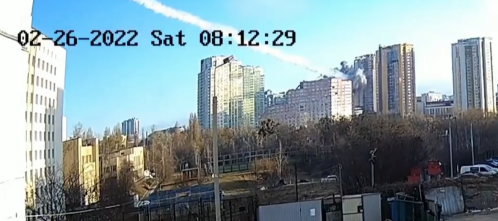
Even the most soporific of media observers cannot fail to have noticed the alarming transition into wall-to-wall coverage of the Russia-Ukraine War, the event which has invaded the collective global consciousness since the final week of February. The spectre of conflict on Europe’s eastern periphery – a part of the world with all-too-many associations for military historians – is, quite understandably, causing deep concern across the continent; nevertheless, the sheer relentless velocity of the exposure invites certain questions, especially given the broader context.
Since March 2020 – and like their contemporaries across much of the world – European governments have been in pseudo-religious thrall to COVID-19 measures, even when these have made little medical and/or economic sense; the cost has been the opening of a deep cleavage between the general population and the classes charged with running the polity. With COVID-19 now so demonstrably and palpably not perceived to be a serious danger, the question of what exactly the last two years have all been for was starting to bite.
In this sense, the timing of the war could scarcely be more providential, but there are also other signs that, for now at least, all is not as it seems:
- Illogical sanctions. The sanctions being applied to the Russian economy do not target its major export – oil – nor the importation into the Russian Federation of Italian designer clobber, meaning that Russia’s jet-set (and their Western suppliers) are unlikely to be massively inconvenienced by the chaos in a neighbouring republic.
- Calculated idiocy. Instead of executing a typically wily and pragmatic plan – such as taking over the Russian-identifying areas of Ukraine – the administration of Vladimir Putin has opted for a ‘March on Kiev’ which has single-handedly wiped out the country’s enormous PR gains of the past decade (hosting the 2018 FIFA World Cup, helping defeat ISIL in Syria) in a matter of days; such apparently deliberate stupidity presages a wider crisis (cf. ‘three weeks to flatten the curve’).
- Ignoring non-military solutions. The obvious compromise which could have resolved this entire impasse – opening up Ukraine’s long path to EU candidacy while ensuring it steers clear of either NATO or SCO membership – seems to have been scuttled to no discernible end. Instead, Europe has suddenly embarked on an ‘impromptu’ remilitarisation drive, while chilling Russian attacks on ‘key installations’ – and the ghastly corresponding collateral damage – transfer Western anti-government anger elsewhere, and ensure Russia’s own population remains in a state of fear.









